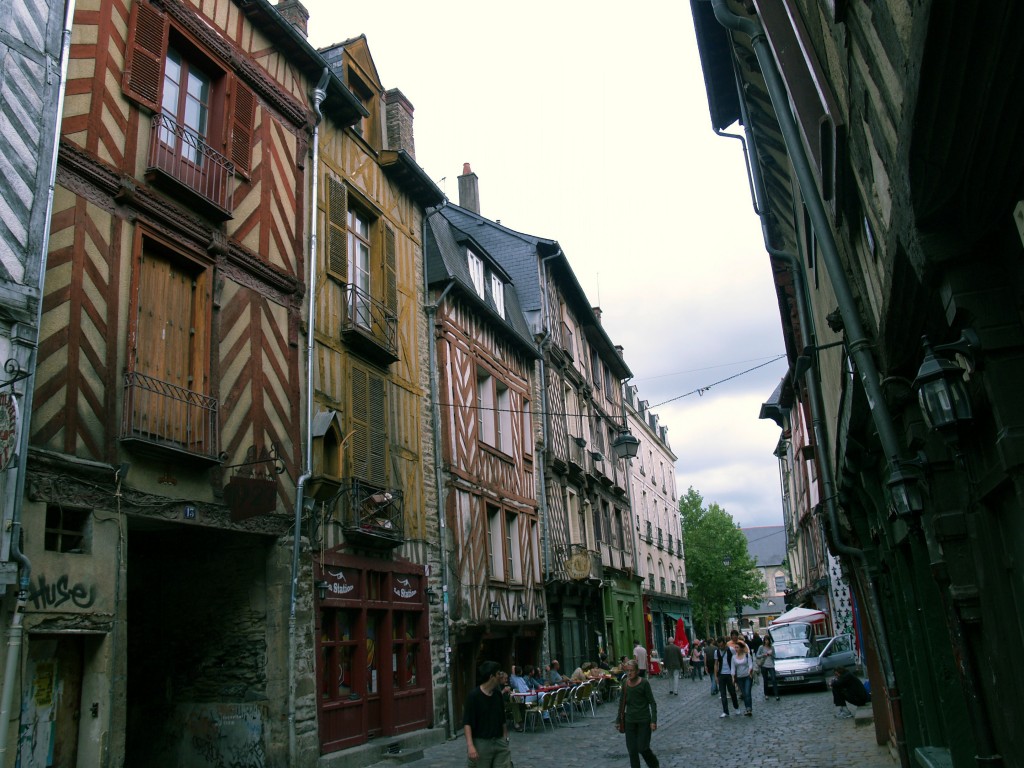This feeling of Joy fell upon me. I was in the medieval part of Renne, France. It was a sunny summer afternoon. I was sitting in an outdoor cafe on an ancient street drinking something called Piçon biere. It’s hard to describe, but I think it was Joy. It didn’t last long, but I thanked God for it immediately because I knew him to be the source.
C. S. Lewis was Surprised by Joy
In his spiritual autobiography, Surprised by Joy, C. S. Lewis describes something similar. Of these moments Lewis says, “the central story of my life is about nothing else.” Lewis’ recounts three such episodes in his childhood. The first occurred while the young Lewis, looking at a blooming currant bush, remembered a toy garden he had built in a biscuit tin. A powerful sensation came over him which he describes as an intense desire. Lewis senses this to be a supernatural encounter in that, following this brief glimpse, “the world turned commonplace again.” The second event was through Squirrel Nutkin by Beatrix Potter when Lewis experienced a “trouble” which pointed toward “the Idea of Autumn”; he became “enamored of a season.” The experience was again, one of intense desire. The last glimpse occurred through the poetry of Longfellow’s Saga of King Olaf. Common to each of these experiences is the feeling of “unsatisfied desire which is itself more desirable than any satisfaction.” He called this sensation Joy.
His description of these encounters implies that this was a meeting with the transcendent for they came “without warning, and as if from a depth not of years but of centuries” (20).
Later, Joy reprises its invitation. Lewis uses the imagery of a sudden spring to describe the second summons of Joy. The encounter came with a quote from and an illustration of Siegfried and the Twilight of the Gods which produces the feeling of “pure Northernness,” a deliberately ambiguous term describing the feeling derived from “a vision of huge, clear spaces hanging above the Atlantic in the endless twilight of the Northern summer, remoteness and severity . . . .” This feeling awakens and fuses with the memory of Joy to create an “unendurable sense of desire and loss.” He characterizes the feeling as “incomparably more important than anything else in [his] experience.” From this point in his life, Lewis pursues Joy; he is on a quest to find its source.
What do encounters with Joy mean?
A clearer idea of what these experiences may mean was suggested to me at a recent teacher’s convention. Syd Hielema was talking about looking at our lives using the Creation-Fall-Redemption-Fulfillment paradigm. I’ve looked at a lot of things with this template, from coffee to zombies, why not myself?
Here are Hielema’s questions:
- Creation: How am I wired? What are my gifts? What gives me joy? In what situations in my past have I felt most fully “myself”? (Read Psalm 139:13-14)
- Fall: In what ways do sin and fear affect me? In what ways do I pretend to be someone I’m not? What interferes with me loving God and loving others? How do the wounds I’ve received from the brokenness of life affect me? (Read Jeremiah 17:9)
- Redemption: Where have I seen God in my life? What helps me and what hinders me in terms of walking with him? What am I quite clear about and what am I quite confused about? Are there particular events or people that stand out on my road to Redemption? (Read Isaiah 43:1-2)
- Fulfillment: What might I be like when God has finished his refining work in me? What might his universe be like? How might I live anticipating that completion as a new creation?
It’s not very difficult to find creational goodness in ourselves, nor is it very difficult to see how we are distorted by sin. The movements of redemption are also apparent when we look for them. But the Fulfillment piece was something I figured was out of my experience–we get that when Christ returns. But Hielema suggests that we might have the occasional glimpse by which we can extrapolate who we will be when God has finished his work. And what it will feel like.
I instantly thought of my moment of Joy in medieval Renne. Are those moments that Lewis called encounters with Joy, a small sip of what it will be like when I am made new?
If they are, oh, I’m looking forward to it!


Leave a Reply